Off-street parking requirements boost rents, which would exacerbate Portland’s housing crisis.
Here in Southeast Portland, many of my neighbors are concerned about parking. In particular, they worry that new residents in the apartment buildings popping up along SE Division and other major corridors will park on the street, taking spots away from neighbors living in single-family homes. When I suggest that the solution to their dilemma is to charge for curb parking, they look at me like I am crazy. The solution, it seems obvious to them, is to make those greedy developers build more parking so those living in single-family homes can keep parking on the street for free, as they have always done. Unfortunately, off-street parking requirements boost rents, which would exacerbate Portland’s housing crisis.
But never fear, neighbors: Portland could open up a spot for you on your block without inflating local housing prices. And you could get money to spend improving your neighborhood. How would this work? Read on….
What can Portland do about parking?!
Renowned parking expert Donald Shoup recommends cities follow a three-part plan for managing parking:
- first, charge the right price for on-street parking,
- second, share the proceeds with neighborhoods, and
- third, stop mandating expensive off-street parking.
Portland has already implemented step three. Compared to most American cities, Portland requires far fewer off-street parking spots in new apartment buildings near transit lines. Predictably, renters in these new buildings avail themselves of free street parking (why not? it’s free!), enraging some neighbors.
But as Shoup explained in the Oregonian, the problem is not a lack of off-street parking in apartment buildings, but rather a lack of on-street parking management for curb spots. Now Portland may be making progress towards managing on-street parking and sharing the revenue with neighborhoods: a Stakeholder Advisory Committee recently unanimously recommended the city implement a new residential parking program that would allow neighborhoods to opt in and receive some revenue.
What does this Shoup guy mean by “the right price for on-street parking”?
The right price for curb parking is the one that creates an available spot on every block. No one ever circles your block looking for a spot. You can always park on the block where you live or the block of the store or restaurant you are visiting.
For metered spots, cities can ensure an open spot on every block by adjusting meter prices dynamically by block and by time of day, as San Francisco and Seattle do. Before implementing dynamic pricing, San Francisco charged flat rates for parking spots, so some blocks were jam-packed while others were relative ghost towns. Using occupancy sensors and remotely programmable meters, the city slowly raised rates on crowded blocks and reduced rates on less popular blocks until a spot opened up on every block. Parking rates on some blocks went up by as much as $1 per hour, and on others, they went down by as much as $1.25 per hour. But on average, meter rates dropped by 4 percent, and drivers saved an average of 5 minutes every time they looked for a place to park.
What's the hidden reason behind skyrocketing housing costs? (Hint: parking rules.)
OMG, Portland is going to install parking meters in my neighborhood?!
No. For residential neighborhoods, Portland would offer the option of a residential parking permit program. To ensure curb spots are available in each neighborhood, the Stakeholder Committee recommended the city only sell a limited number of permits in each neighborhood—maybe only as many permits as there are on-street spaces. This would be a stunning departure from Portland’s existing permit programs that sell as many permits as residents want to buy, sometimes 20 percent more permits than there are curb spots.
Limiting permits by neighborhood is a simpler tool than San Francisco’s technologically enabled dynamic price adjustments by block and by time of day, so we could end up with crowded blocks in one part of a neighborhood and open spots in another part of the neighborhood. But neighborhood zones will be pretty small—roughly 5 blocks square or bigger—so residents with a permit won’t have to go too far to find a spot.
Is the city forcing us to buy residential parking permits?
No. If Portland adopts the stakeholder’s recommendations, each neighborhood would be able to choose whether to use residential permits and how much money to collect. If you and your neighbors around SE Division are sick of cars cruising the neighborhoods looking for parking, you could choose to opt into the residential permit program. Laurelhurst neighbors might not need permits, so they wouldn’t have to do anything.
How much would permits cost?
Depends on what your neighborhood wants. The minimum permit price would need to cover the Portland Bureau of Transportation’s (PBOT) administrative costs (about $5 per month for existing permit programs) plus a charge to pay for programs that improve Portlander’s mobility, such as low-income discounts on car share programs or bus passes. Neighborhoods could choose to add a neighborhood charge to the price of the permit and spend the collected revenue on neighborhood improvements like crossing beacons, curb cuts, curb extensions (also called bulb-outs), crosswalks, and other improvements.
A household’s first permit would cost less, the second would cost more, and the neighborhood might choose to charge nonresidents even more. Let’s say PBOT ends up charging $10 for administrative costs plus mobility programs, and your neighborhood decides to charge an additional $10 per month for each household’s first permit, $25 additional for the second permit, and $50 additional for nonresidents. So,
- households with no car would pay nothing,
- households with one car would pay $20 per month,
- households with two cars would pay $55 per month, and
- nonresidents with one car would pay $60 per month to park in the neighborhood.
But remember: your neighborhood could choose whatever prices it wants to add on to the base PBOT charge.
What about this neighborhood improvement money you talked about?
Imagine that a 10-block square neighborhood zone with 500 curb spots decided to charge the above prices and sold one permit to 250 households, two permits to 100 households , and 50 permits to nonresidents.
Do the math, and that neighborhood would get $102,000 per year to spend and could soon become the best place in town for kids, seniors, and everyone to safely get around. It could install, for example, five flashing beacons at crosswalks ($10,000 each), two curb extensions ($13,000 each), two raised crosswalks ($8,000 each), ten wheelchair curb ramps ($800 each), and six stop or yield signs ($300 each). Every year. Or maybe my neighborhood could use some of the cash to spruce up the Sunnyside sunflower.

Sunnyside Sunflower time by Nicole Ramsey used under CC BY-NC-ND 2.0
How can my neighborhood sign up?
If PBOT adopts the Stakeholder Committee’s recommendations, neighborhoods could start the process of opting into the program with a letter of support from the Neighborhood Association or a signed petition from 50 percent of residents. (The latter seems like a very high bar just to express interest, considering that only about 26 percent of residents [33 percent of registered voters] in Multnomah County voted in last November’s election, much less voted for the same thing.)
Once a neighborhood has expressed interest, PBOT would send a ballot to every resident. If at least 50 percent of residents vote and a majority of those who vote say “yes,” the Neighborhood Association would appoint two to five people to an Area Parking Committee to decide how many permits to issue and how much to charge for them.
What if there aren’t enough permits to go around?
Not sure. Your neighborhoods would sell permits in two rounds: Round 1 would be open only to residents, and Round 2 would be open to both residents and nonresidents. Your neighborhood might choose to let households buy only one permit in Round 1 to make sure all residents get at least one. If it turned out that more people wanted a permit than got one, you might consider increasing the price the next year to bring demand in line with supply.
Tell me again why I should want to pay to park in my own neighborhood?
So you can be sure of finding a parking spot near your house. So you can invest in making your neighborhood safer. And so Portland can continue to be a thriving green city without letting nonsensical parking policies contribute to housing price increases.
Like this article? Read about how parking rules have misshaped our communities here.

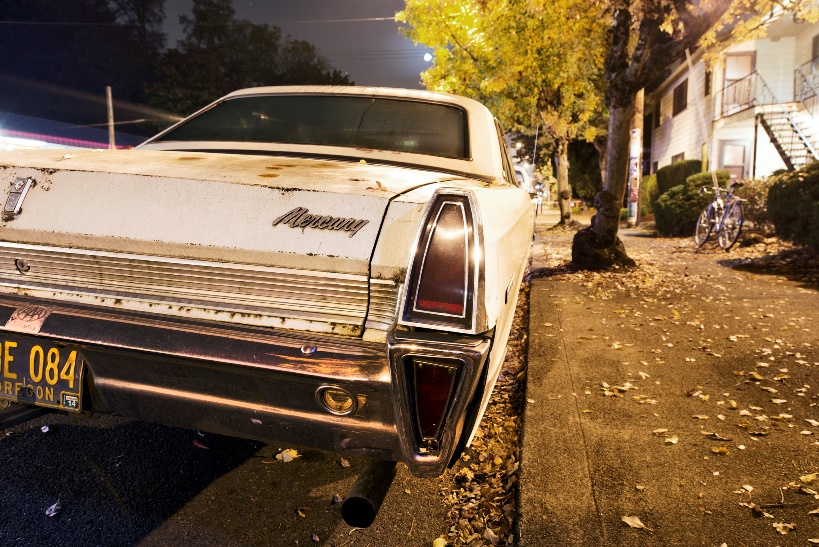
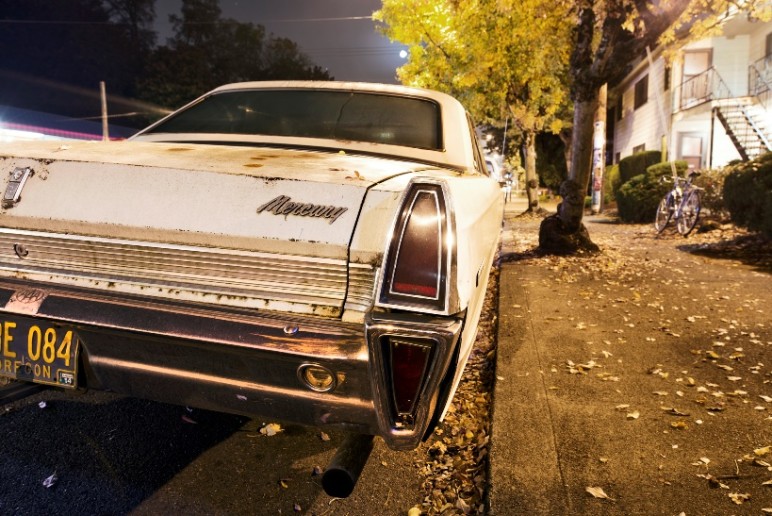


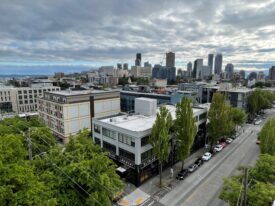

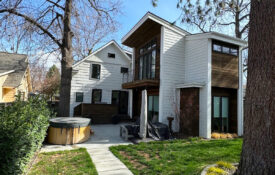

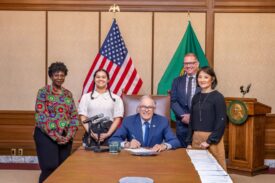

Paul
Regarding an update on the NW Portland neighborhood parking permit program, as reported in January 2016’s edition of the NW Examiner newspaper, “…nearly two passes have been sold for every on-street parking space in the district.”
Tony Jordan
Great article!
There is a group of people interested in promoting good parking policy in Portland called PDX Shoupistas.
I’ve written a number of blog posts on the various policy proposals floating around, including a Primer on Possible Permit Programs which details my understanding on what the Stakeholder Committee proposed.
Like minded folks who would like to help see this through are encouraged to check out the site and sign up to help!
Joseph Spencer
Re: Portland May Offer a Parking Win-Win-Win by Kristin Eberhard
I believe this article makes several false assumptions and statements, and obscures the serious damage which the proposal now being discussed poses for residential neighborhoods.
First, I would seriously question whether reducing or eliminating on-site parking requirements for multi-family housing actually lowers RENTS. Clearly such reductions lower housing COSTS, but where is the evidence that developers voluntarily lower rents because they save on construction. The current rise in Portland rents demonstrates otherwise. I would love to see a credible study that suggests the claim is true. Instead, under the current zoning rules and requirements, even as recently tightened (slightly), the developers get a windfall and nearby residents have to absorb the additional parking demand.
Second, parking managers certainly owe a debt of gratitude to Dr. Shoup. However, his theories have mostly been tested in major city downtowns in which there is great demand for short-term curbside spaces (with cars circling for a few available spaces and causing excess pollution and danger to pedestrians) AND sufficient off-street public and/or commercial parking to absorb the demand when on-street fees are raised. However, applying these same principles to residential neighborhoods with much different parking dynamics makes little sense.
Third, before assuming that residential permit parking is the answer, one must understand its intent. The validity of such regulations has been affirmed by the US Supreme Court but only under certain circumstances. Generally it is used to protect the quality of life of residential neighborhoods which are threatened by external parking demand inspired by demand generators such as hospital centers, transit hubs, etc. Using permit parking, on such a wide scale as proposed here, would surely inspire legal challenges and might not hold up to scrutiny.
Fourth, the article dangles the idea of funds for neighborhood improvements without any adequate discussion of the methods and true costs of enforcing the new residential permit system. Any observer of Portland street life knows that current enforcement of parking regulations is grossly inadequate, especially posted time limits outside the downtown. Has the City (or proposal advocates) adequately projected the cost of enforcement? On a large scale, this would entail a greatly increased number of parking enforcement agents as well as expensive license-plate-recognition (LPR) technology. (Such enforcement MUST be pro-active, not complaint based, otherwise it will turn neighbor against neighbor.) It would also, at the outset, require extensive street surveys to determine local dynamics (occupancies, turnover rates, average parking duration, etc.) and estimate the number of permits that could be sold. And traditionally, one must also assess what percentage of the demand comes from non-residents (since clearly, if most of the parkers are residents and most/all buy permits, the program will have little positive impact).
Finally, even if excess revenue results and is partly devoted to local improvements as described (curb extensions, flashing lights at crossings), this would represent a MAJOR shift in financial burden. Presently, such improvements are and should be funded through the general fund. Why should we now shift to a system in which those buying permits are asked to subsidize improvements that benefit all neighborhood residents. It doesn’t make sense.
There is a lot that can be done to regulate parking in Portland and improve both the quality of life and the business health of our communities. This approach, however, is seriously misguided.
JeffS
Parking permits create a paradox. On one hand, we must start by reminding people that they do not own the street space in front of their homes. Then we allow them, as a neighborhood, to sell them for profit.
Personally, I would prefer to back up a step, to the point where we decide if we should use this public space for parking at all. Surely if we have the right to charge for parking, we have the right to remove it completely.
That vote, over course, would never be allowed. The reasoning behind why would shed a lot of light the overall business of public parking.
Mike O'Brien
Hi, Joseph–Integrating parking spaces into a residential building is costly, and for smaller multifamily buildings, really not feasible in terms of the building’s size. If parking were required in new buildings along Division, for example, their construction costs would either increase significantly or become impractical to build at all. While rents in Portland are rising fast, that is a market response to the demand created by all the newcomers. If in-building parking were added, developers would still charge rents high enough to make a profit and as high as the market would bear. I don’t think we have yet seen the top of the market, either–a new house is going up across the street from us in North Portland, to be listed at $850,000.
Long-term, to reduce carbon emissions 80% by 2050, as called for in the current Climate Action Plan, we must switch from personal ownership of cars to a shared system, which is starting to emerge with Uber, ZipCar, Car2Go and so on. Parking of personal cars may become much less of an issue as that concept develops. We just returned from a few days in Manhattan, where no one we were with owns a car–they walk, take subway, train and bus transit, taxis, shuttles, and a few even ride their bikes (scary).
Anyway, I strongly support the City experimenting with changing the dynamics of parking. Current practice is not working.
Melissa
My neighborhood has a terrible vehicle-storage problem. Two houses on my block have way more than one vehicle per person. One guy has three vehicles, all of them on the street. Each person in these households drives one vehicle regularly; the others sit on the street for weeks and months at a time. There are three stored vehicles next to my house as I write (I live on a corner lot.) There are no 24-hour parking signs–so people think they can legally store their vehicles for as long as they like–and virtually no enforcement. Dealing with Abandoned Autos is pointless; they will only ticket damaged or unregistered vehicles. If a zoned system would fix the storage problem in my neighborhood, I am all for it. But my personal choice would be for metered parking. It’s simple. It’s easy to administer. It generates revenue. Parking out here in the hinterlands doesn’t have to cost as much as parking downtown, and the meters could even be set for 24 hours. But parking on all city streets has to cost something. The stored vehicles here have been ruining the quality of life on my street for way too many years already. And I doubt it is just my street that suffers likewise.
Jr
Has anyone seen serious parking problems that have not been addressed in portland? I mean up close and personal,not down town, really experienced driving around and around and parking 3 or 4 blocks away, accross a major street or two, to get to a residence? I have seen one that really needs a solution, 102nd and Burnside. It was similar to parking in NW downtown but out of control. If there are more places like this, we as citizens need to voice our opinions and help with solutions and preventing parking disasters.
Steve
I actually dig the parking lot art. I’m thinking of having something somewhat similar for the local middle school where we have some local artists paint not just the lines for parts of the lot, but totally decorate out those same areas.
We’d have special parking passes for the ability to park in those spots. Maybe one lot for varsity athletes, another for tenured faculty. I think it will be pretty cool!